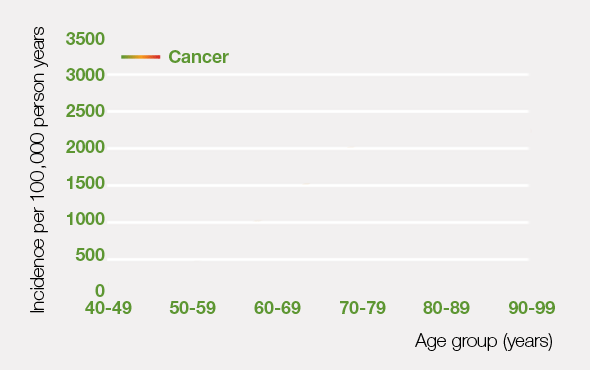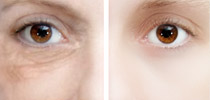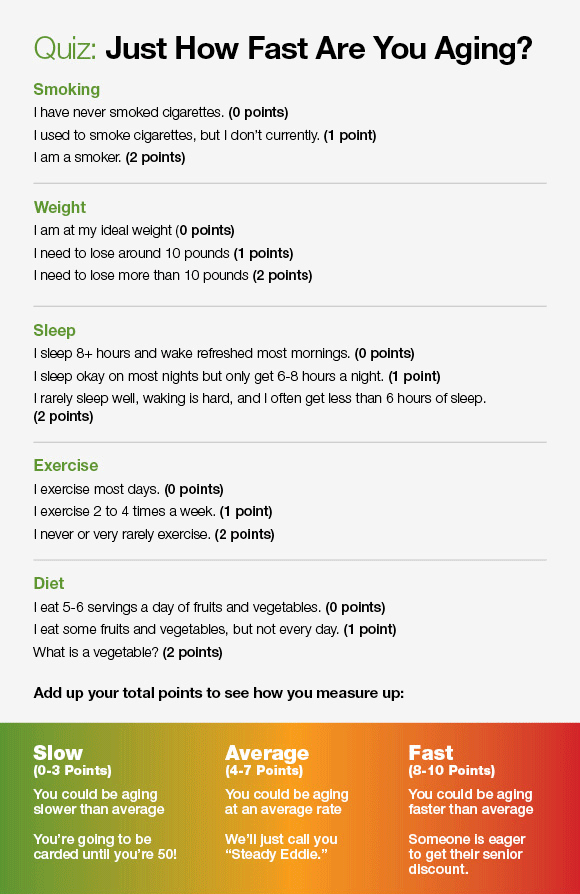Here are the steps everyone can take to naturally slow the aging process:
Be active
In recent studies regular exercise has been associated with a reduction
in risk for breast cancer, cardiovascular diseases, diabetes, and
colorectal cancer. One study even suggested that that regular exercise
is associated with a longer lifespan, especially when combined with
weight redution.1
Reduce your stress
Sustained stressors such as emotional trauma, feeling threatened or
insecure, and even natural disasters appear to be associated with
increased aging biomarkers.2 You can work to reduce the
stress you feel from those events by practicing relaxation techniques
such as meditation, breathing exercises, and biofeedback. Walking or
jogging is another great stress reducer—and my personal favorite.
Maintain your ideal weight
Being overweight is associated with a wide variety of age-related
diseases, including diabetes, colon cancer, gallstones, hypertension,
heart disease, and stroke.3 Achieving your ideal weight can
be hard, but there are many tools available that can help you reduce
your calories, maintain your lean body mass, and lose body fat. If you
have a significant amount of weight to lose, try working towards losing
10 pounds over the next two months—that is doable.
Make time for sleep
Lack of sleep can have devastating effects on our health, impacting our mood,4 our memories,5 and even cold and flu resistance.6
To improve sleep, consider having a consistent sleep schedule. Use your
bed only for sleep, try a "white noise generator" such as a fan, avoid
caffeine after noon, and limit alcohol intake in the last 2-3 hours
before bedtime.
Stay connected
The role of good social relationships is important to our overall
health. As we age, having good social ties is linked to less depression,
better cognitive skills,7 and even a longer life.8
Consume the right nutrients:
Eat fruits and vegetables
Since
most Americans don't eat the recommended seven servings of fruits and
vegetables per day, the opportunity for improving health (and longevity)
by improving diet is great—just by adding some berries to breakfast and
an extra vegetable to your dinner plate.9
Take a multivitamin
B12, B6,
C, E, niacin, folic acid, iron, or zinc all seem to mimic damage to DNA
from radiation.10 Everyone should consider a good multivitamin to help
supplement their base nutritional needs.
Load up on polyphenols
Polyphenols are found in many fruits, vegetables, green tea, black tea,
red wine, coffee, chocolate, olives, and extra virgin olive oil. They
are plant-based nutrients that have antioxidant benefits and help
protect against cellular aging.11
1 Moore SC,
Patel AV, Matthews CE, et al. Leisure time physical activity of moderate
to vigorous intensity and mortality: a large pooled cohort analysis.
PLoS Med. 2012;9(11):e1001335. PMID: 23139642.
2 Price LH,
Kao HT, Burgers DE, Carpenter LL, Tyrka AR. Telomeres and early-life
stress: an overview. Biol Psychiatry. 2013 Jan 1;73(1):15-23. PMID:
22831981;
3 Field AE,
Coakley EH, Must A, et al. Impact of overweight on the risk of
developing common chronic diseases during a 10-year period. Arch Intern
Med. 2001 Jul 9;161(13):1581-6. PMID:11434789.
4 Cole MG,
Dendukuri N. Risk factors for depression among elderly community
subjects: a systematic review and meta-analysis. Am J Psychiatry. 2003
Jun;160(6):1147-56.. PMID: 12777274.
5 Schmidt C,
Peigneux P, Cajochen C. Age-related changes in sleep and circadian
rhythms: impact on cognitive performance and underlying neuroanatomical
networks. Front Neurol. 2012;3:118. PMID: 22855682.
7 Seeman TE,
Lusignolo TM, Albert M, Berkman L. Social relationships, social support,
and patterns of cognitive aging in healthy, high-functioning older
adults: MacArthur studies of successful aging. Health Psychol. 2001
Jul;20(4):243-55. PMID: 11515736.
8 Kern ML,
Porta SS, Friedman HS. Lifelong Pathways to Longevity: Personality,
Relationships, Flourishing, and Health. J Pers. 2013 Aug 8. PMID:
23927423.
9 Ames BN,
Shigenaga MK, Hagen TM. Oxidants, antioxidants, and the degenerative
diseases of aging. Proc Natl Acad Sci U S A. 1993 Sep 1;90(17):7915-22.
PMID: 8367443.
10 Ames BN. Micronutrients prevent cancer and delay aging. Toxicol Lett. 1998 Dec 28;102-103:5-18. PMID: 10022226.
11 Fraga CG,
Galleano M, Verstraeten SV, Oteiza PI. Basic biochemical mechanisms
behind the health benefits of polyphenols. Mol Aspects Med. 2010
Dec;31(6):435-45. PMID: 20854840.
12 Greenspan
P, Bauer JD, Pollock SH, et al. Antiinflammatory properties of the
muscadine grape (Vitis rotundifolia). J Agric Food Chem. 2005 Nov
2;53(22):8481-4. PMID: 16248541.
13 Sandhu AK,
Gu L. Antioxidant capacity, phenolic content, and profiling of phenolic
compounds in the seeds, skin, and pulp of Vitis rotundifolia (Muscadine
Grapes) As determined by HPLC-DAD-ESI-MS(n). J Agric Food Chem. 2010
Apr 28;58(8):4681-92. PMID: 20334341.
14 Gourineni
V, Shay NF, Chung S, Sandhu AK, Gu L. Muscadine grape (Vitis
rotundifolia) and wine phytochemicals prevented obesity-associated
metabolic complications in C57BL/6J mice. J Agric Food Chem. 2012 Aug
8;60(31):7674-81. PMID: 22788667.
15
Pastrana-Bonilla E, Akoh CC, Sellappan S, Krewer G. Phenolic content and
antioxidant capacity of muscadine grapes. J Agric Food Chem. 2003 Aug
27;51(18):5497-503. PMID: 12926904.
16 Khurana S,
Venkataraman K, Hollingsworth A, Piche M, Tai TC. Polyphenols: benefits
to the cardiovascular system in health and in aging. Nutrients. 2013
Sep 26;5(10):3779-3827.







